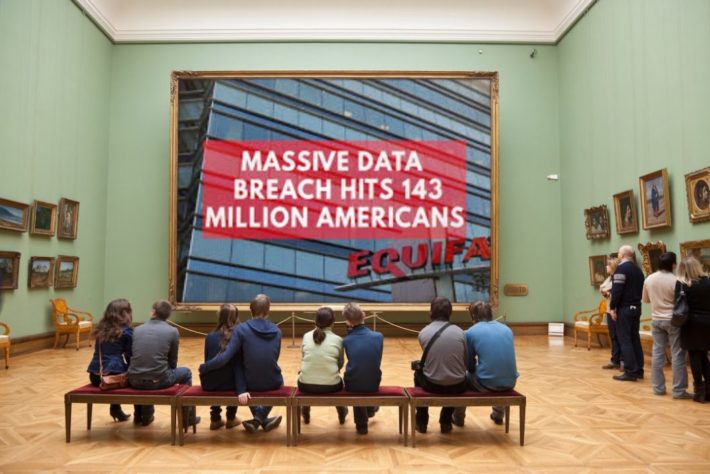State on State warfare is not the always imminent and ongoing political tragedies it once was. Warfare against the United States is being fought by with fourth generation warfare rules. Large corporations are nations.
Open Source Anti-Corporate Insurgency is an organizational method by which a large collection of small, visible and empowered activists groups can work together to take on corporate hierarchies. It does not have a centralized operations or command and little to no advertising spending. It is a loose, meshed network of individuals and small groups working independently, but united by a single purpose, in this case: defeating Equifax. There will be more assaults, and that’s before all the lawyers pick the bones. The Equifax ‘hack’ (if that’s what it was) was a terrorist action. It sent an environmental cue to the other combatants to ‘attack’.Media reporting about the hack amplified the war paint.
Equifax hack is a kill shot. The terrorists stalked their target, it was not a opportunistic ‘the door was open’ robbery. The first consumer credit bureaus appeared in the 1870s and amassed huge archives of deeply personal information. After generations of growth and acquisitions, Experian, Equifax, and TransUnion are multi-billion-dollar corporations that track our movements, spending behavior, and financial status. This data is used to predict our riskiness as borrowers and to judge our trustworthiness and value in a broad array of contexts, from insurance and marketing to employment and housing.
Equifax used to be called the Retail Credit Corporation. It was a leader in the world of ‘business intelligence’. The use of the term ‘intelligence’ is no accident. The Retail Credit Corporation was a big ally of J. Edgar Hoover and the FBI.
The Fair Credit Reporting Act was passed in 1970, when the intelligence agencies began being subject to public scrutiny. In 1968, a Congressman named Cornelius Gallagher chaired a special subcommittee on invasions of privacy and did a hearing on the company.
The purpose of Retail Credit’s business, said the CEO of the company, was to impose a ‘discipline’ on the American citizen. Gallagher made the point that in America, you have the right to confront your accuser. Retail Credit had seized/privatized this right. The Fair Credit Report Act was passed to give Americans some sort of due process right over their own data. It was the first big data law.
When the act passed, the reporting agencies weren’t liable for errors. That’s why today Equifax doesn’t have to take care of your data.
Credit reporting is the data that links surveillance, credit, democracy and national security questions. But, from the NSA to Facebook and down the corporate chain, we never have never figured out how to handle privacy and data, computerization and personal data has always been linked to the power to control citizens, not privacy.
Cyber-security vulnerabilities are a clear example of what happens if you don’t incorporate the value of data into accounting. We need an overhaul of accounting standards so we see data as an asset. Right now we don’t, and this leads to misallocation of capital. We treat data like we treated systemic risk before the financial crisis.
Anyone who saith “I have the answer!” is wrong from the get-go. There isn’t one answer. It’s an entire approach to what society looks like.
Equifax wasn’t the beginning of the anti-corporate open sourced insurgencies. But, it is a new start.
11Sep
Equifax met fourth generation warfare. And lost.

